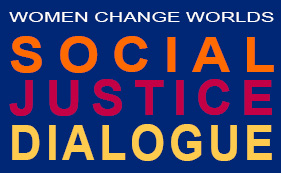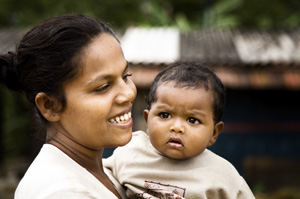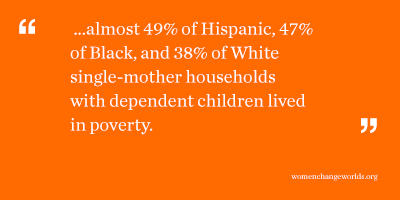 Social Justice Dialogue: Eradicating Poverty
Social Justice Dialogue: Eradicating PovertyMore than the Gender Wage Gap…On Many Fronts the Economic News is Not Good for Women
In spite of attention-grabbing headlines like, “The Richer Sex: How the Majority of Female Breadwinners is Transforming Sex, Love, and the Family" (Liza Mundy, 2012), on many fronts the economic news is not good for women: and indeed for the poorest, the news is getting worst.
It is not good news when we examine:
 The gender wage gap that continues at all educational levels. In 2012, the median annual earnings for womenworking full-time were 76.5 % of men’s earnings and had barely changed since 2001. This is evident in the gap between the median earnings for women and men with Associate’s degrees ($42,300 and $55, 600, respectively), and continues through earnings for those with Ph. D. degrees.
The gender wage gap that continues at all educational levels. In 2012, the median annual earnings for womenworking full-time were 76.5 % of men’s earnings and had barely changed since 2001. This is evident in the gap between the median earnings for women and men with Associate’s degrees ($42,300 and $55, 600, respectively), and continues through earnings for those with Ph. D. degrees. The inadequacy of full-time, year-round minimum wage earnings to support a family. In 2009, single mothers earning the hourly minimum wage of $7.25 earned just over $15,000--well below the poverty level of $17,285 for a family of three. These earnings are far below the median U.S. family income (almost $50,000) and the median earnings of dual earning households (over $78,000).
The inadequacy of full-time, year-round minimum wage earnings to support a family. In 2009, single mothers earning the hourly minimum wage of $7.25 earned just over $15,000--well below the poverty level of $17,285 for a family of three. These earnings are far below the median U.S. family income (almost $50,000) and the median earnings of dual earning households (over $78,000).
The earnings and wealth gap is not a recent phenomenon; it has been growing steadily for three decades. However, only recently has it become a topic of general interest, particularly as the gap between the very rich and the very poor accelerated during a time of deep economic recession. This inequality gap has seeped into the national consciousness as it became a rallying cry for the “99 percent” movement, and trickled into the 2012 presidential debates.
Clearly, at the Wellesley Centers for Women an account of economic inequality is incomplete without the concerns outlined here: the inequalities among women, including the deep poverty of vulnerable families headed by women. In addition, we must address the often overlooked and alarming educational divide that exacerbates these economic concerns by eroding the possibility of social mobility through education, particularly for the poorest women. While access to college has become a mantra of the current administration, we must become more aware of and concerned with the educational divide as it affect low-income mothers – both in and out of the workforce.
Erika Kates, Ph.D. is a Research Scientist at the Wellesley Centers for Women at Wellesley College, working in two major research areas: Gender and Justice with a focus on women, and low-income women’s access to education.
Sources:
Center on Budget and Policy Priorities. March 2013. The Value of TANF Cash Benefits Continued to Erode in 2012. Washington D.C.: CBPP.
U.S. Census Bureau. Current Population Survey. 2012.
U.S. Census Bureau Statistical Abstract of the U.S. 2012 (based on 2009 data) Tables 692, 703.
American Association of University Women. Fall 2013. The Simple Truth About the Gender Pay Gap. Washington D.C. AAUW.
When you subscribe to the blog, we will send you an e-mail when there are new updates on the site so you wouldn't miss them.
Comments